Newcastle United's big call on St James' Park expansion
Newcastle United's owners, building the brand overseas, are set to make their biggest call yet on building a bigger St James' Park – or an all-new stadium.
Three hours before kick-off time in Saitama, the temperature was in the mid-30s.
In the city, and nearby Tokyo, most people were still at work.
Yet there was already a long queue of Newcastle United fans, many of them Japanese, patiently waiting to be let into the futuristic Saitama Stadium, built for the 2002 World Cup.
And these supporters represent part of the future of one of the most traditional English football clubs.
Newcastle, by necessity in a world of Profit and Sustainability Rules (PSR), are going global, as underlined by trips to the USA, Australia and Saudi Arabia in the past couple of years.
What’s more, the club is getting good at it.
As those fans were waiting the late-afternoon heat in Saitama, a well-stocked pop-up United club shop, with full branding, was already doing brisk business.
Such a professional and profitable commercial set-up was seemingly unthinkable before the 2021 takeover.
Once inside the stadium, those supporters, from all corners of the globe, made themselves heard during a 4-1 win on a hot and humid night.
There were more than 2,000 fans in the away end, and more supporters dotted around the stadium, and a Toon Army Tokyo surfer flag added to the spectacle as a storm passed over the ground.
“Absolutely incredible again,” said United head coach Eddie Howe after the game. “Obviously, the local people as well, the Japanese Newcastle supporters. It’s great to play in front of them.”
The day before, the new adidas third kit had been launched at a Tokyo sports shop. Former United striker Shola Ameobi was at the store to greet fans, who were queuing out of the door.
Ameobi, now the club’s loan coordinator, was there for hours signing shirts.
During the Mike Ashley years, Newcastle’s retail operations were very different, as underlined by the club’s largely flat commercial revenues during his 14 years as owner.
The pre-season tours of the Ashley era weren’t always ideal for either footballing or commercial reasons.
There was that time the club went on a three-game tour of the USA in 2011 – and everything that could go wrong seemingly did go wrong.
Then there was that summer when a proposed tour to South Africa fell through, and the club cobbled together a last-minute itinerary taking in games in Germany and Hungary. Mid-tour, one fixture was switched to Austria, and it was a logistical nightmare for fans and journalists alike.
That was just how it was. Things are different now.
PSR benefits
Pre-season tours, it’s clear, are key to the club’s growth – on and off the pitch.
They bring in extra commercial revenue which can be reinvested in the playing squad, and they help build the club’s global fanbase and brand, which, in turn, brings more money into the coffers.
The trips aren’t always ideal, and Howe voiced his unease at the club’s draining end-of-season trip to Australia given that his players had had a particularly demanding season.
Speaking late last season, Howe said: “From a physical perspective, after a long season, it’s not something we would want to do. But the club’s moving forward very quickly, and we have to keep up the pace with everything they want to do.”
As it was, the revenue from the tour will have helped make the club compliant in terms of the PSR, a point made by Darren Eales in Tokyo.
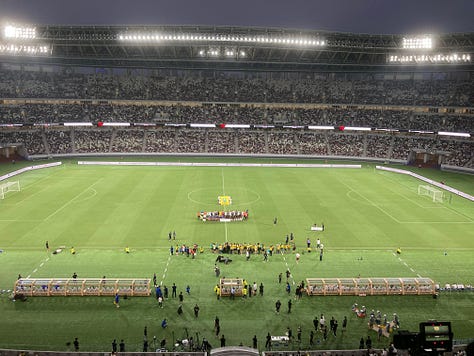
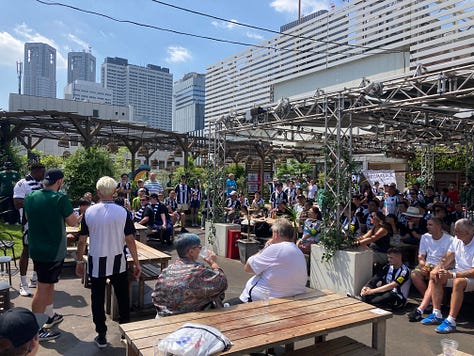


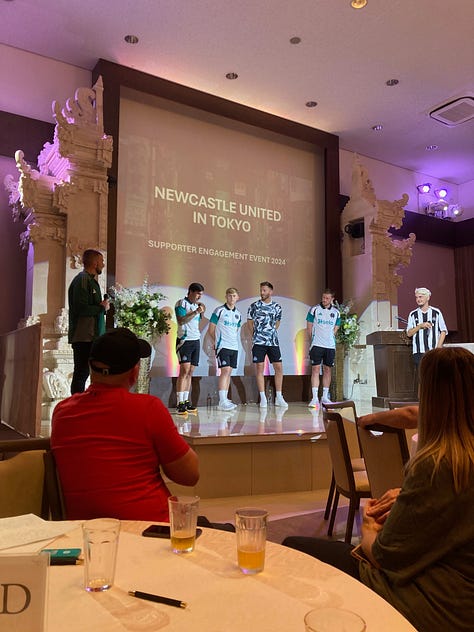

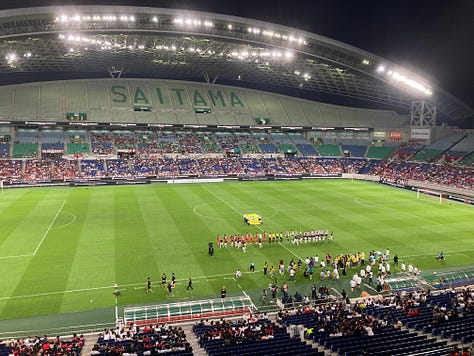
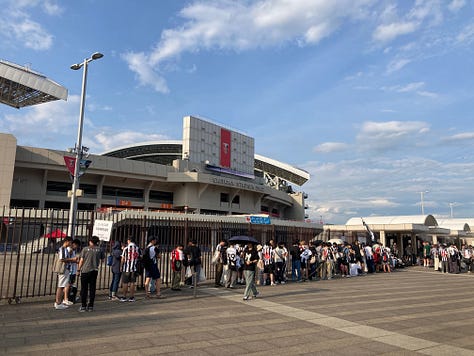

Eales, United’s chief commercial officer, gave his view at a well-attended rooftop fan event in Shinjuku City ahead of the second tour game against Yokohama F Marinos at Tokyo’s National Stadium.



